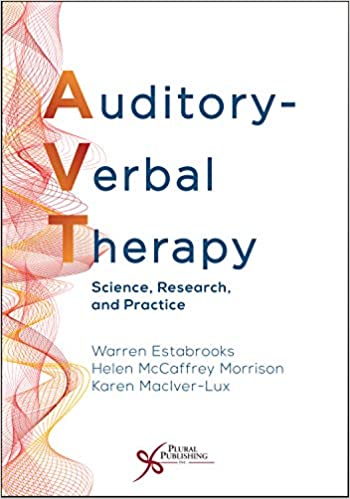

Most ebook files are in PDF format, so you can easily read them using various software such as Foxit Reader or directly on the Google Chrome browser.
Some ebook files are released by publishers in other formats such as .awz, .mobi, .epub, .fb2, etc. You may need to install specific software to read these formats on mobile/PC, such as Calibre.
Please read the tutorial at this link: https://ebookbell.com/faq
We offer FREE conversion to the popular formats you request; however, this may take some time. Therefore, right after payment, please email us, and we will try to provide the service as quickly as possible.
For some exceptional file formats or broken links (if any), please refrain from opening any disputes. Instead, email us first, and we will try to assist within a maximum of 6 hours.
EbookBell Team

4.3
38 reviewsEdited by world renown experts with contributions by a global cohort of authors, Auditory-Verbal Therapy: Science, Research, and Practice is highly relevant to today s community of practitioners of Auditory-Verbal Therapy (LSLS Cert. AVT), and to those who are working towards LSLS Cert. AVT certification. It is also an excellent resource for audiologists, speech-language pathologists, teachers of children who are deaf or hard of hearing, administrators, psychologists, cochlear implant surgeons, primary care physicians, social workers, and other allied health and education professionals. Although written primarily for practitioners, it will be a welcome resource for parents, family members, and other caregivers who love children who are deaf or hard of hearing, and for whom the desired outcomes are listening, spoken language, and literacy.
The book is divided into five parts:
Part I: Overview of AVT: Foundations and Fundamentals
This section covers the philosophy, history, and principles of AVT, including outcome data, results of a new survey of LSLS Cert. AVT community on global practice patterns in AVT; information on auditory brain development, and evaluation of evidence-based and evidence-informed practice for the new decade.
Part II: Audiology, Hearing Technologies, and Speech Acoustics for AVT
This section covers audiology and AVT, hearing aids, implantable and hearing assistive devices, and in-depth speech acoustics for AVT.
Part III: Developmental Domains in AVT
This section covers the development of listening, three-dimensional conversations, speech, play, cognition, and literacy, as applied to AVT.
Part IV: Auditory-Verbal Therapy in Action
Here strategies for developing listening, talking and thinking in AVT are covered, including parent coaching, the AVT Session: planning, delivery and evaluation, music and singing, assessment and inclusion of AVT children in the regular pre-school.
Part V: Extending and Expanding the Practice of AVT
The final section includes information on children with complex hearing issues, children with additional challenges, multilingualism, children and families experiencing adversity, tele-practice, coaching and mentoring practitioners, and cost-benefit of AVT.